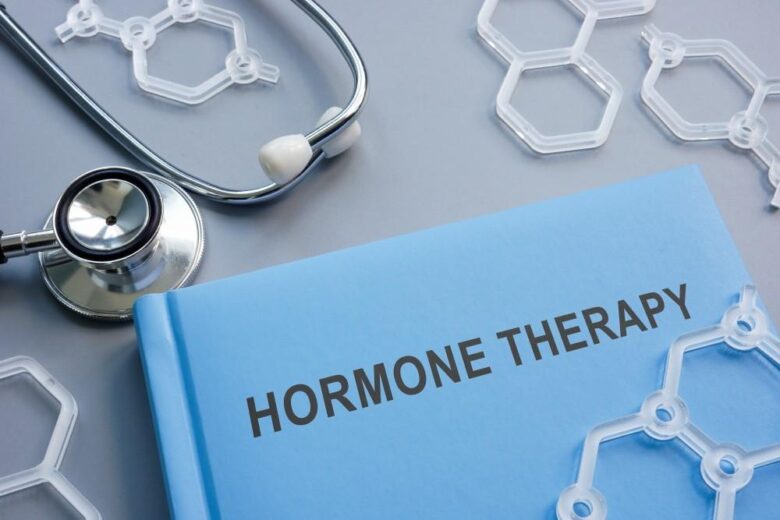Hormones are essential to the functioning of the human body. They are involved in almost every biological process, from mood regulation to metabolism and reproductive health. However, when hormones are out of balance, they can have a major impact on your life. That’s where hormone therapy comes in, but not just any hormone therapy is right for your needs. Personalized hormone therapy is a new, customized approach that tailors treatment to your unique hormonal needs.
Instead of traditional dosages and formulas, this approach tailors treatment to your hormone levels, symptoms, and lifestyle. It’s popular for treating menopause, low testosterone, thyroid problems, and other hormone-related issues. With the continued advancement of diagnostic technology and personalized care, personalized hormone therapy is becoming an increasingly popular choice for people seeking more precise and effective treatment. Let’s learn more about this life-changing approach to improving hormone health.
What is Personalized Hormone Therapy?
Personalized hormone therapy is a medical approach that adjusts hormone levels based on a person’s unique physiological characteristics and needs. Traditional hormone therapy typically uses standard dosages, but its effectiveness can vary from person to person. Personalized therapy begins with comprehensive hormone testing, including blood, saliva, or urine tests. Based on the results, your healthcare provider will create a personalized treatment plan for you.
Your healthcare provider specifically tailors this plan to use bioidentical or synthetic hormones. This approach is so effective because it takes into account your age, gender, medical history, symptoms, and even your genetic profile. Personalized therapy restores balance to hormone levels by precisely targeting the specific hormones that need to be balanced, such as estrogen, progesterone, testosterone, thyroid, or cortisol. This precise strategy can reduce side effects, improve efficacy, and enhance overall quality of life.
Who is Personalized Hormone Therapy Right For?
Many people choose personalized hormone therapy because they are going through menopause, but it’s not just for menopausal women. It can also help men who are going through andropause (a period when testosterone levels drop). Women who have irregular periods, severe PMS, or difficulty conceiving can also benefit from hormone therapy designed specifically for them. People can also use this therapy to treat thyroid problems, adrenal fatigue, or hormonal issues caused by stress.
Some athletes use hormone optimization to speed recovery and improve their athletic performance, but always do this in consultation with a doctor. In short, anyone who experiences symptoms such as fatigue, mood swings, weight gain, brain fog, loss of libido, or sleep disorders may have a hormonal imbalance. Personalized therapy can help address these issues. This approach can help you understand what your body needs and doesn’t need, which can significantly improve your physical and mental health.
The Importance of Testing and Diagnosis:
Accurate testing is the foundation of personalized hormone therapy. Without accurate testing, it’s all guesswork. We can measure hormone levels using blood, saliva, or urine, depending on the hormone under measurement. To ensure accuracy, some tests must be taken at specific times of day or during certain phases of the menstrual cycle. Some advanced clinics also offer genetic testing to gain insight into how your body processes hormones.
Hormone specialists review the results of this data collection to identify any abnormalities. But diagnosis is about more than just numbers; it requires an in-depth understanding of your symptoms, lifestyle, stress levels, and goals. This holistic approach helps create an effective and sustainable treatment plan. Regular follow-up testing ensures that your hormone levels remain balanced and that adjustments can be made as needed to improve your treatment plan.
Different Hormones Used in Personalized Therapy:
Depending on your deficiencies or imbalances, a personalized treatment strategy may include different hormones. Women who are menopausal or have irregular periods often use estrogen and progesterone. These hormones can help relieve symptoms such as mood swings, hot flashes, and night sweats. Men who are deficient in testosterone often use it, which can lead to fatigue, muscle loss, and decreased libido. People with hypothyroidism often use thyroid hormones, such as T3 and T4. These hormones are essential for regulating metabolism and energy.
If your adrenal glands are not functioning properly, you may need to adjust your cortisol and dehydroepiandrosterone (DHEA) levels. Personalized therapy widely uses bioidentical hormones, which are chemicals identical to the hormones produced by the body, because they are generally better tolerated and more effective. Depending on the patient’s specific situation, these hormones can be administered in the form of lotions, pills, patches, injections, or even pills that are injected under the skin.
Benefits of Personalized Hormone Therapy:
One of the benefits of personalized hormone therapy is that it can significantly improve your life. Many people report better sleep, more stable moods, more energy, higher libido, and easier weight management. Because the therapy is tailored to each individual, it is more effective at addressing the root of the problem. Patients often feel more in control of their health, and the therapy can be adjusted as their needs change.
Many personalized therapies also include bioidentical hormones, which are often considered safer and more natural than synthetic hormones. However, proper medical supervision is crucial. Personalized hormone therapy differs from general therapy because it takes into account your body’s unique biochemistry and rhythms. It is a proactive and responsive technology that takes care of your hormone health, resulting in long-term health and vitality.
Conclusion:
Personalized hormone therapy is changing the way we think about hormone health. Instead of adopting a universal approach, personalized hormone therapy considers the unique hormonal needs of each individual, utilizing modern diagnostic tools and personalized treatment plans to deliver precise, effective, and flexible care. Whether you’re dealing with menopause, low testosterone, thyroid issues, or simply want to improve your health, personalized hormone therapy can help you restore your hormone balance more accurately.
Accurate testing, professional advice, and regular checkups are essential. As personalized therapy becomes more widely known and accessible, more and more people are using it to restore their energy, mood, and overall well-being. If you’re experiencing unexplained symptoms or conventional treatments aren’t helping, it may be time to consider personalized therapy.
FAQs:
1. How is personalized hormone therapy different from conventional hormone therapy?
Personalized hormone therapy differs from traditional hormone therapy because different dosages are used, depending on each person’s hormone levels and needs.
2. Is personalized hormone therapy safe?
Yes, it is safe as long as it is supervised by a trained healthcare provider. Many treatments use bioidentical hormones because they function similarly to the body’s natural hormones.
3. How do I know if I need hormone therapy?
Hormonal imbalances can trigger symptoms such as fatigue, mood swings, loss of libido, weight gain, or sleep problems. Hormone tests can determine if treatment is needed.
4. How long does it take for personalized hormone therapy to work?
Some people notice changes within a few weeks, but it can take several months to see the full benefits as hormone levels gradually return to balance.
5. Can men benefit from personalized hormone therapy?
Of course they can. Men with low testosterone or other hormonal abnormalities can significantly improve their energy, mood, and physical health with the right treatment.




